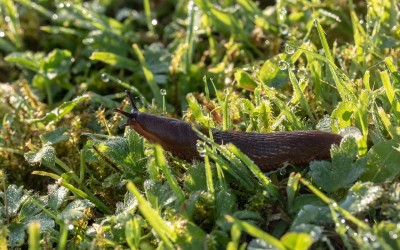We are in Deer Worm Season: An update from Dr. tatiana Stanton

Update from Dr. tatiana Stanton
September 2, 2022
Hi Folks,
I wanted to caution folks, that I have had a couple of people contact me about deer worm infections in their goats or sheep in the last two weeks. The incidence of deer worm infections goes up sharply as we get into fall so be sure to familiarize yourself with typical signs etc. There are videos of infected animals and a bunch of information from the 4 year Cornell study on deer worm at https://blogs.cornell.edu/smallruminantparasites/chemical-treatment-protocols/ .
The protocol for the study was:
- Safeguard (10% Fenbendazole) orally for 5 days at 25 mg per kg of live weight (1 cc per 10 pounds of live weight). FARAD provided a meat withdrawal period of 14 days for goats and 54 days for sheep for Safeguard at this dosage..
- Dexamethasone injectable 2 mg/mL IM at 0.2 mg/kg live weight for first 3 days and 0.1 mg/kg next 2 days (1/2 cc of Dexamethasone per 10 pounds live weight for the first 3 days, followed by cc Dexamethasone for next 2 days). Ewes and does in last month of pregnancy are not to receive Dexamethasone. Instead, they will receive flunixin meglumine (Banamine㈢) 50 mg/mL at the rate of 1 cc/100 lb live weight (1.1 mg/kg) orally for 5 days. FARAD provided a meat withdrawal period of 60 days for Banamine at this dosage.
- 1/4 cc of either "Product A" or "Product B" SQ for 5 days for each 10 pounds of live weight determined by whether the animal has been assigned to "Treatment A" or "Treatment B". One of these products is an Ivermectin Placebo and the other is Ivermectin 1% injectable administered at 0.5 mg/kg live wt. FARAD provided a meat withdrawal period of 96 days for both goats & sheep.
Please plan on discussing these protocols with your vet. Some vets like to go 6 days rather than 5 days, some like to keep the dexamethasone at full strength for all 5 or 6 days rather than halving it after the first 3 days. Your vet should also check with FARAD to see what withdrawal periods FARAD is now recommending. As you can see above the meat withdrawal on the ivermectin at these heavy dosages is quite long so deciding to include ivermectin in your protocol has implications you really need to weigh before deciding to include it in your protocol. Some vets like to include Thiamine, etc.
A chart with the exact amounts of each drug is on Page 4 of https://cpb-us-e1.wpmucdn.com/blogs.cornell.edu/dist/e/7832/files/2017/11/Deer-Worm-Instructions-Study-Farmers-1wild04.pdf
Additionally, some of us had very little barber pole worm and other gastrointestinal worm parasite issues in our animals this summer what with all the hot, dry weather but now that we have had some rain, several farmers are reporting that their parasitic worm infections in their goats and sheep are increasing and they are getting some pretty anemic animals. Keep vigilant about doing your 5 point checks regularly and including FAMACHA scoring in the checks.
Best of luck, tatiana
Upcoming Events
Cornell Organic Field Crops & Dairy Conference
March 6, 2026
Waterloo, NY
Farmers, researchers, educators, and agricultural service providers from across the Northeast are invited to the 2026 Cornell Organic Field Crops & Dairy Conference, held Friday, March 6, 2026, from 8:00 a.m. to 4:30 p.m. at the Lux Hotel & Conference Center in Waterloo, N.Y.
Co-hosted by New York Soil Health and Cornell CALS, the annual conference brings together leaders in organic grain, dairy, and livestock systems to share practical tools, new research, and farmer-tested strategies to support resilient and profitable organic production.
NY Pork Producers - 2026 Producer Summit & Annual Meeting
March 13 - March 14, 2026
Hamilton, NY
Join NYPP for the 2026 Producer Summit, where producers of all sizes and production styles will explore marketing, branding, selling pork, and current consumer trends through practical sessions designed to help build demand, connect with customers, and add value to their operations.
Mid Atlantic Grain Conference
March 15 - March 16, 2026
We're excited to share that the 2026 Mid‐Atlantic Grain Fair & Grain Conference is coming March 15-16, 2026 in Pennsylvania! This two-day event brings together farmers, millers, bakers, brewers, distillers, researchers, and grain enthusiasts to learn, connect, and celebrate local grains. These events will be offered at two seperate locations.
Announcements
No announcements at this time.





